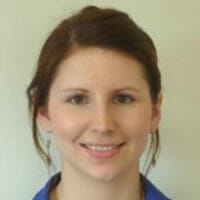
When trying to diagnose patients with Alzheimer’s disease using a new machine learning program, how well the patients can perform the tasks assigned to them plays a key role, say researchers from St. George’s University of London, UK.
The researchers previously have shown that speech assessments can be used to detect the disease at an early stage. In this study, they used a variety of approaches to engage 50 participants with varying degrees of impairment or no impairment. Tasks included the following, recorded for later analysis:
- Describing a scene what is known as the “Cookie Theft” picture, a test commonly used by clinicians in dementia diagnosis;
- Narrating a learned story, such as well-known fairy-tales like Cinderella;
- Recalling a procedure, such as recounting how to make a cup of tea;
- Novel narrative retelling (describing a story from pictures presented in a wordless children’s story book); and
- Conversational speech, such as giving instructions to another person, or describing a route through landmarks on a map.
After running the machine learning speech assessment, narrating an overlearned story, such as Cinderella, gave the most accurate results, Peter Garrard, M.D., Ph.D., and colleagues reported. Using speech recorded from that task, the machine learning program identified Alzheimer’s or mild cognitive impairment with 78% accuracy. This was close to the “Cookie Theft” task at 76% — results which are comparable to existing diagnostic tests, they said.
The other tasks assessed gave accuracies ranging between 62% (novel narrative retelling) and 74% (procedural recall), the research team wrote.
The researchers hope that the current results will help efforts to diagnose Alzheimer’s earlier.
“In the long-term, we hope that this technology could be used remotely, such as through smartphone apps, reducing anxiety around testing for disease,” author and Ph.D. student Natasha Clarke said. “If we can make testing easier, then hopefully we can identify disease earlier and start treating people sooner.”
The investigators plan to follow up with study participants one year later to learn more about disease progression.
The study was published in the journal Frontiers in Computer Science.



